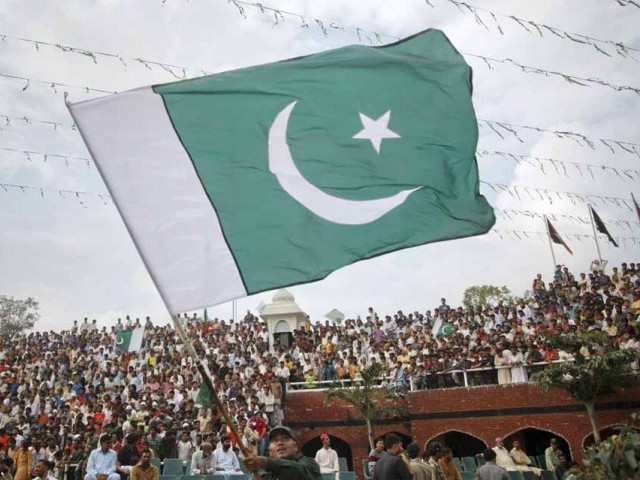With 14th of August around the corner, festive fever is on the rise. Civic organizations, student groups, and social, electronic and print media are joining the swelling ranks of celebratory brigades. And that’s where some of the problems with ill-informed, obsessive nationalism begin. Have you been confused by invitations to ‘no ethnic identities welcome’ events? If yes, read on.
This past week, I received a few invitations for Independence Day walks and seminars. The proposition, ‘No Sindhi, No Punjabi, No Pathan, and No Balochi – Only Pakistani Welcome’ made them distasteful. Honestly, who’s left then? With the exception of a few citizens living in federal territories, most Pakistani citizens live in her provinces and adopt some form of local identity.
For over sixty-four years, Pakistani identity has been a thorny issue. Even without addressing the academic quarrels over Pakistan’s ideology or whether Jinnah’s Pakistan was meant to be a Muslim nation-state, a state for South Asian Muslims, an Islamic state or a state for all oppressed minorities of the Indian subcontinent, shaping dialogue on how we address ourselves as a multi-ethnic state is not easy.
When asked about his primary identity in 1977, Abdul Wali Khan, founder of the Awami National Party (ANP), said “I have been Pakistani for 30 years, Muslim for 1400 years, and Pathan for 5000 years.”
His reply adds perspective to the problems associated with assuming that one’s Pakistani identity must always be primal and singular. Collective memory, time and soft power tactics will help create the permissive space for dialogue on what it means to be Pakistani. Obliterating centuries old ethno-linguistic aspirations to impose an unchangeable identity will only foster separatist dissent. Bangladesh’s emergence after the failed ‘One Unit’ project is a case in the point.
Ultranationalists are fast to quote Jinnah’s views to suit their ends. In his reply to a civic address provided by the Quetta Municipality on 15th June, 1948, Jinnah said, “ We are now all Pakistanis--not Balochis, Pathans, Sindhis, Bengalis, Punjabis and so on--and as Pakistanis we must feet behave and act, and we should be proud to be known as Pakistanis and nothing else.”
True. But does it follow that Jinnah wanted every Pakistani citizen to forgo his ethno-linguistic identity? That’s not the immediate implication. Jinnah asks his Sindhi, Punjabi, Pathan, Baloch, or Bengali Pakistani citizens to give importance to their inclusive Pakistani identity and act as ‘equal citizens of one state’. Plus, his support for American, Canadian and Australian styled federalism for Pakistan shows the he recognized the sovereignty and autonomy of federating units and their peoples.
Arguments to the effect that ethno-linguistic identities ought to be mitigated because they create conflict are also largely unsubstantiated. Karachi’s recent urban violence, for instance, may well be correlated with the presence of different linguistic groups. But saying that these different linguistic groups are the sole cause of all urban violence is stretching the argument a bit too thin. Did the London riots, for instance, occur only because of different linguistic groups? I think not. World over - political, social, cultural and economic factors provide better causal links for urban violence.
At any rate - we must not loose sight of the fact that identity is plural, fluid, situational and context driven. The Pakistani identity of a Manchester United fan watching a football match between Barcelona and Manchester United is largely irrelevant. But during an India-Pakistan cricket match, it becomes much more relevant for analyzing behavior. Likewise, an individual’s Sindhi identity may not be the primary influence on his behavior or choices on Pakistan Day. Entirely different calculus may apply for Sindh Culture Day.
The bottom-line? Viewing identity as a singular and static construct is flawed. The Pakistani identity is inescapably plural. I ought to able to be a Sindhi, Seraiki, Syed, feminist and left-off center, chai-loving Pakistani with no contradiction.
On this 14th August, let’s agree to celebrate our unity by recognizing our differences. I’m going to join Independence Day Celebrations - as both - a proud Sindhi and proud Pakistani. Howzat for starters?
This piece was written prior to Independence Day.
On being Pakistani
Viewing identity as a singular and static construct is flawed. The Pakistani identity is inescapably plural.



COMMENTS
Comments are moderated and generally will be posted if they are on-topic and not abusive.
For more information, please see our Comments FAQ